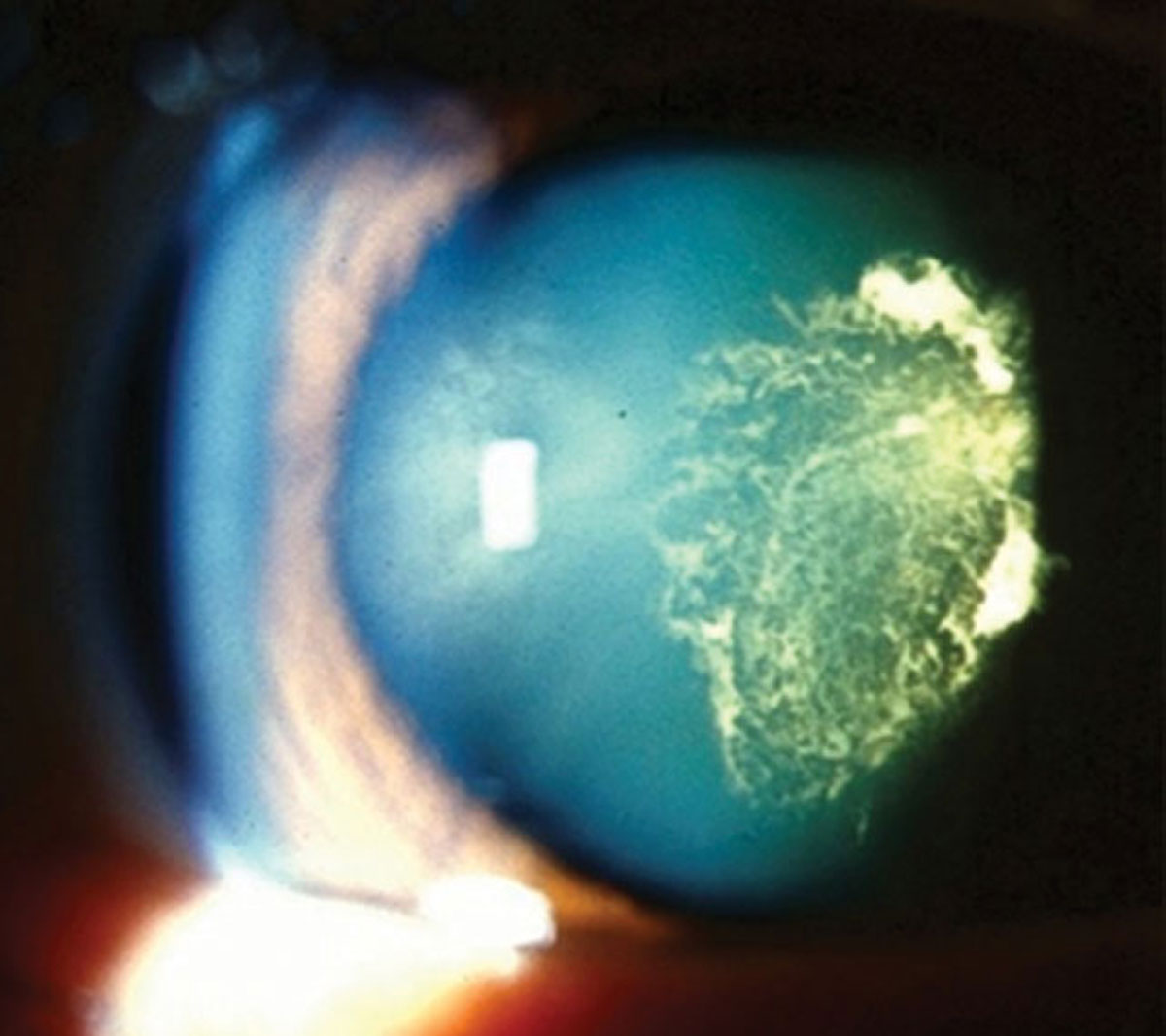 |
|
This large RCT found no benefit of vitamin D supplementation on cataract incidence. Photo: Julie Tyler, OD. Click image to enlarge. |
Although there is significant regional variability, a sizable portion of the nationwide population is deficient in vitamin D, which is associated with increased inflammation and higher rates of oxidative stress. Because these factors can contribute to cataract development, researchers of a recent study investigated whether supplementing with vitamin D might reduce this incidence. However, the data failed to provide sufficient evidence to support this theory.
The research group performed an ancillary study of the D-Health Trial—a randomized, placebo-controlled, double-masked trial of vitamin D with all-cause mortality as its primary outcome. Participants included in the analysis (n=19,925) were 60 to 79 years old. They were randomly assigned to either the vitamin D group (consuming 60,000 IU of vitamin D3) or the control group (consuming a placebo pill of excipient only) taken once a month for up to five years.
During the follow-up period, 18.4% of participants underwent cataract surgery (18.5% of the vitamin D group and 18.3% of the placebo group). The two groups had very similar incidence rates of 41.6 and 41.1 per 1,000 person-years, respectively. The hazard ratio (1.02) did not support vitamin D supplementation as a protective factor for cataract development.
The researchers also pointed out in their paper that this finding was consistent even among people predicted to have low vitamin D status at baseline. They noted that the observed effect was “unaffected by age, sex, body mass index, predicted baseline serum 25-hydroxyvitamin D concentration and ambient UV radiation.”
Although this data suggests that vitamin D has an inconsequential effect on cataract incidence, the results of prior studies have provided highly inconsistent evidence. In their paper, the researchers cited findings from two former studies based on the Korean National and Nutrition Examination Health Survey. “Only one of these reported the association between serum 25(OH)D concentration and age-related cataract overall. The other study found that higher serum 25(OH)D concentration was only associated with reduced risk of nuclear cataract,” they noted. On the contrary, a longitudinal study done in the United States that analyzed only nuclear cataract found no association with vitamin D supplementation.
“The D-Health Trial is the first large randomized controlled trial (RCT) to report on the effect of vitamin D supplementation on cataract, so comparison with previous RCT findings is not possible,” the researchers wrote. “While [these] results are likely to be broadly generalizable to the Australian setting and other communities with a similar prevalence of vitamin D deficiency, they are largely uninformative about the effect on cataract of treating vitamin D deficiency or of population-wide supplementation in areas where a much higher proportion of people is vitamin D-deficient,” they concluded.
Rahman ST, Waterhouse M, Romero BD, et al. Vitamin D supplementation and the incidence of cataract surgery in older Australian adults. Ophthalmology. September 26, 2022. [Epub ahead of print]. |

